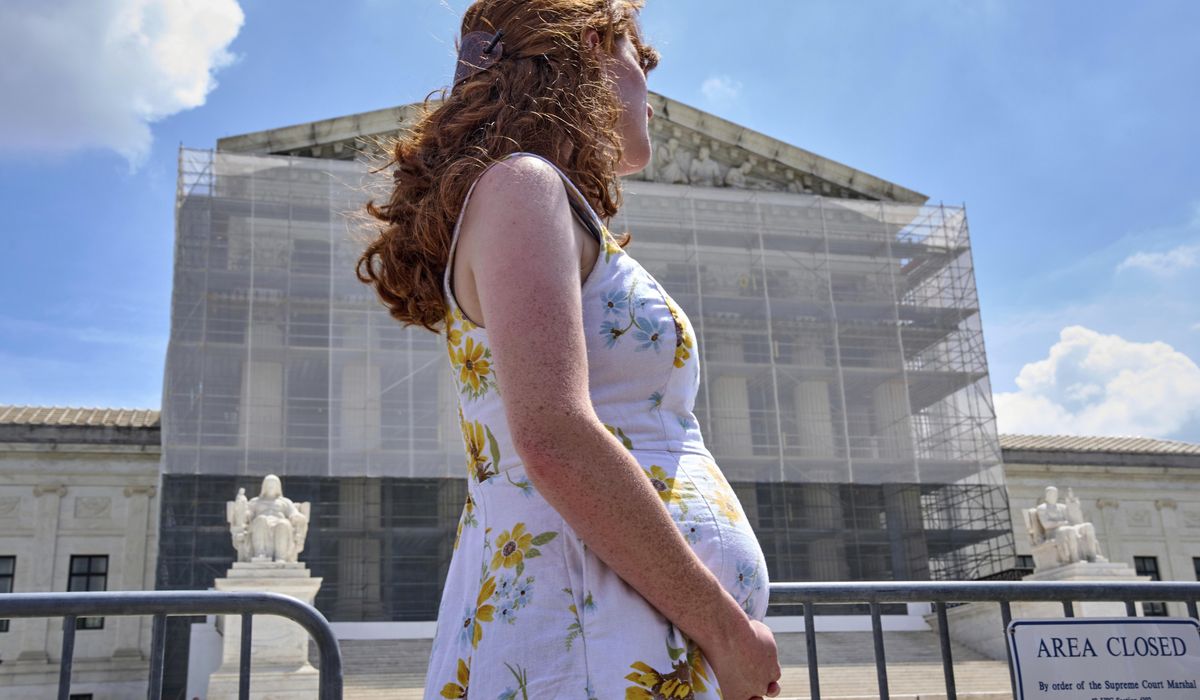


Less than a month after the Supreme Court told federal judges to cool it with nationwide injunctions, a federal appeals court has issued a new ruling finding that those injunctions can be legal — as long as states are the plaintiffs.
The 9th U.S. Circuit Court of Appeals, in a decision late Wednesday, allowed a new universal injunction against President Trump’s restrictions on birthright citizenship.
Judge Ronald M. Gould, writing the key opinion, said states, which were the lead plaintiffs in the lawsuit, need certainty in their policies. Allowing a patchwork of rules, in which babies born to illegal immigrants would be recognized as citizens in some places but not others, would be difficult for the states to grapple with.
“It is impossible to avoid this harm absent a uniform application of the Citizenship Clause throughout the United States,” he wrote.
The ruling marks the second time this month that a court has stepped in to issue a nationwide block on Mr. Trump’s birthright citizenship plans, after the Supreme Court had seemingly given the president more room to run.
The revival is worrying to the Trump administration, which thought it had won a major legal victory in the justices’ ruling after facing a record number of injunctions from courts over the last six months.
In a 6-3 ruling in June, the Supreme Court, while ducking a ruling on the legality of Mr. Trump’s specific birthright citizenship plan, said the universal injunctions issued by lower courts had gone too far.
“These injunctions — known as ‘universal injunctions’ — likely exceed the equitable authority that Congress has granted to federal courts,” Justice Amy Coney Barrett said in the key opinion.
But the justices hinted at two escape clauses that could still lead to the same outcome of a nationwide blockade. One involved cases in which states themselves were plaintiffs, and the other was when a class-action complaint was certified.
Courts this month have leapt at both of those options to reimpose nationwide injunctions on Mr. Trump’s birthright citizenship executive order. A federal judge in New Hampshire certified a class action for all children born to illegal immigrants and temporary foreign visitors, and the 9th Circuit flexed the state option.
“This is not surprising, and this is why I think the court will have one of these cases or more back up on these procedural grounds, sooner rather than later, before even getting to the substance of birthright citizenship,” said Ilya Shapiro, director of constitutional studies at the Manhattan Institute.
In Wednesday’s 9th Circuit ruling, the majority did get to the substance of Mr. Trump’s birthright policy, finding that the president’s plan ran smack into the 14th Amendment, which guarantees citizenship to “all persons born in the United States and subject to the jurisdiction thereof.”
Judge Gould said children of illegal immigrants and temporary visitors are under the jurisdiction of the U.S., and so are covered.
Trump lawyers had argued that illegal immigrants and temporary visitors don’t owe “allegiance” to the U.S., and so aren’t under its jurisdiction.
But the 9th Circuit said an 1898 Supreme Court ruling that looked at births to immigrants didn’t read any allegiance test into the 14th Amendment.
“The defendants’ proposed interpretation of the Citizenship Clause relies on a network of inferences that are unmoored from the accepted legal principles of 1868 [when the 14th Amendment was ratified],” wrote Judge Gould, a Clinton appointee.
Circuit Judge Patrick J. Bumatay, a Trump pick for the court, largely dissented from the ruling, saying the states didn’t prove any concrete legal injury, so they shouldn’t have had standing to bring the lawsuit.
He said the states’ claims that they would have to alter policies and perhaps end up with more people living within their borders weren’t proof enough to sue.
“Taken to its logical endpoint, the states’ theory would grant them standing to contest virtually any federal action that might tangentially affect who lives or is born within their borders,” he concluded.
That’s what Justice Samuel A. Alito Jr. said he feared in his opinion in last month’s case.
He urged courts to be strict in granting states the right to sue on behalf of their constituents. And he warned courts not to immediately turn to class-action lawsuits as a workaround to the justices’ admonitions.
“Lax enforcement of the requirements for third-party standing and class certification would create a potentially significant loophole to today’s decision,” he wrote. “Federal courts should thus be vigilant against such potential abuses of these tools.”
• Stephen Dinan can be reached at sdinan@washingtontimes.com.
